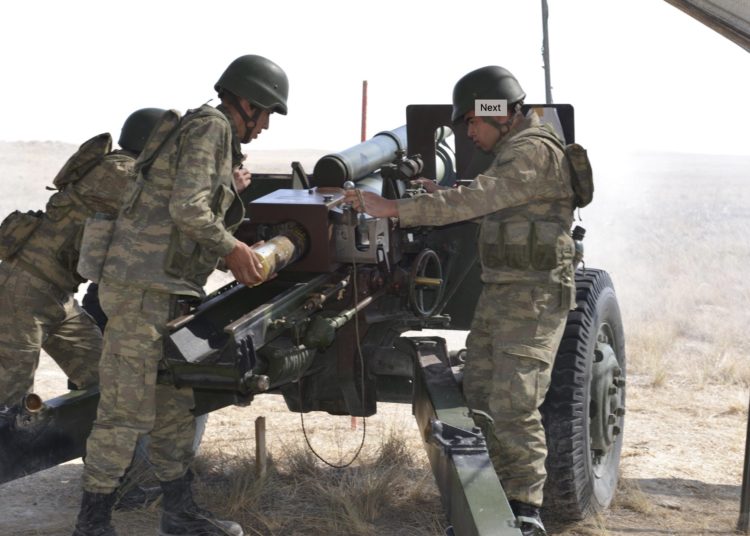Abdullah Bozkurt
The Turkish military secretly boosted the training of rebel militia in Syria in explosives, IEDs. sabotage and other special operations after the US withdrew from the training program but fighters failed to gain traction in the field despite an increase in numbers, Turkish military documents have revealed.
According to the classified documents dated June 2016 and signed by Yaşar Güler, the then-deputy chief of genera staff and currently chief of general staff of the Turkish Armed Forces (TSK), 151 rebels were trained jointly by the US and Turkey until October 9, 2016. Turkey decided to unilaterally continue with the program and equip the project after the US pulled out. Turkish forces had completed the training of 312 rebels as part of the national program by June 2016, when the document was prepared by Güler.

A review of the documents indicates that the Turkish program specifically focused on the Bayırbucak area in northwestern Syria near the border where the ethnic Turkish Turkmen minority lives. On February 4, 2016 the military set up the Operation Coordination Center (HKM) for the rebels in the town of Yayladağı in the southeastern province of Hatay near the Syrian border. Güler said 117 militia were trained in “Unconventional Operations” (KOH, Konvansiyonel Olmayan Harekat), a specialized term used in the Turkish military for asymmetrical warfare, sabotage, infiltration, improvised explosive devices, explosives and guerrilla tactics. In addition to this, 601 rebels received basic combat training.
The two-page secret military document is posted above
The document also refers to a framework agreement signed by Turkey and the US for a joint operation to clear militants of the Islamic State in Iraq and the Levant (ISIL) from the Zeytinlik region, an area of 98 kilometers long and 40 kilometers deep between the Mare-Hercele line and Jarablus in Syria. A Turkish cabinet decision on July 22, 2015 authorized the US-led anti-ISIL coalition to deploy aircraft in Turkish territory.
However, not everything turned out the way the Turkish side contemplated. In the documents Gen. Güler recorded Turkey’s frustration that a plan called Agate Noble, a military operation in Zeytinlik that was finalized at a US-Turkish meeting in September 2015 in the German city of Stuttgart, was not put into action because of what he said was US unwillingness to go ahead with the plan. Instead the US forces increased cooperation with the Democratic Union Party (PYD) in anti-ISIL combat, the Turkish general wrote.
In the meantime the Turkish military also set up a second Special Forces Operation Base (Özel Kuvvetler Harekat Üssü, or ÖKHÜ-2) on August 6, 2015 in the border province of Kilis specifically for training rebels to deploy in an offensive targeting the Zeytinlik region. However, despite the training and artillery fire cover provided by the Turkish military, the militia failed to succeed in the region, Güler noted. He urged more militia training, more emphasis on indoctrination, the selection of fighters from the local population, the securing adequate US aerial support and the establishment of a Syrian Task Force (Suriye Görev Gücü) to coordinate and channel all the national efforts from a single place.
The document, which was sent to the office of the prime minister and copied to the Turkish Intelligence Organization (MIT) and the Foreign Ministry, confirms the Turkish military’s involvement in shoring up opposition forces in Syria that are fighting against Syrian government forces.












